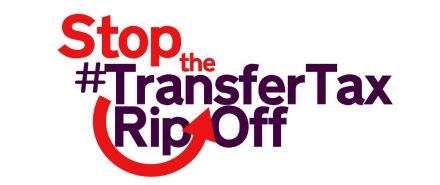Imagine that when your sister opens the box of chocolates you give them at Christmas she will find that someone else had eaten one in five of them. Or that when your nephew unwraps the Lego you sent him it turned out that some of the pieces were missing. You’d be pretty annoyed right?
Well just imagine if instead of sweets or toys, your gift was a small sum of cash that might make the difference between life and death – paying for your nephew’s medical bill or for your sister to have food despite a failed harvest. You’d be more than annoyed, you’d be furious. Yet this is effectively what happens when someone in the UK tries to send money to friends or family living in the poorest countries in the world using the giant international money transfer companies that control the market – primarily Western Union and Moneygram. When people send £100 abroad to someone in need, they often find that a smaller sum arrives, with rip off fees and charges of up to 20% taken off.
People transferring money often have little choice but to pay these extortionate charges – with the problem particularly acute when sending remittances to sub-Saharan Africa. It is essentially a ‘transfer tax’ levied on payments to support family or friends overseas. And it’s why I’ve launched a campaign at www.stopthetransfertax.com to build support for this disgraceful exploitation to end.
At a time when our national discourse is dragged ever rightward by Nigel Farage and his band of discontents, it is important that as progressives we stand up and defend the benefits that migration brings to the UK, and stand beside them if they are being ripped off. Many are themselves in low-paid work, and work extra hours to save enough to be able to send money abroad – only to be hit by a double whammy as sending smaller sums often results in even higher marginal rates. But the majority of people transferring money abroad are not mostly migrant workers, but second and third generation established communities who maintain a strong link with relatives abroad. Money transfer is also used by parents sending money to children on a gap year, or who are volunteering or working overseas.
Weak competition, concentration of market power, and flawed financial regulation all contribute to high ‘transfer taxes’. Just two money transfer operators, Western Union and MoneyGram, account for two-thirds of remittance transfers in sub-Saharan Africa, in what could be described by some as at best a duopoly and at worst a cartel across sub-Saharan Africa – whichever is correct, it is certainly not competitive.
This problem is not new – in 2009 the G20 agreed that fees should be capped worldwide at a maximum of 5%. But charges have actually risen since then – the global average charge is still at 7%, with average fees for sending cash from the UK to sub-Saharan Africa running at a massive 12%. I’ve heard of many examples of constituents being charged as much as 20%. If Money Transfer Operators feel they can justify this pricing, then they should make these costs transparent.
So why am I taking action now? Firstly, because yesterday was the date by which the G20 had committed to reducing transfer fees to 5% – a deadline they have now missed. And secondly, it was the first Sunday of Advent – which is why I chose yesterday to launch my campaign to Stop The Transfer Tax Ripoff at St John the Evangelist church in Brixton. Christmas is a time of giving, not taking. So I’m asking that the big international money transfer companies immediately halve their fees in the run-up to Christmas, as a stepping stone to finding a long term solution to bringing charges down to acceptable levels.
Thank you for reading about this important issue – now please sign the campaign petition at www.stopthetransfertax.com and urge your family and friends to do the same.
Tessa Jowell is the Labour MP for Dulwich and West Norwood





More from LabourList
‘Reconciliation is not weakness. It is leadership’
‘Press regulation is the simplest test of whether Starmer will govern with integrity’
‘Winning was the easy part. Governing requires a different politics’